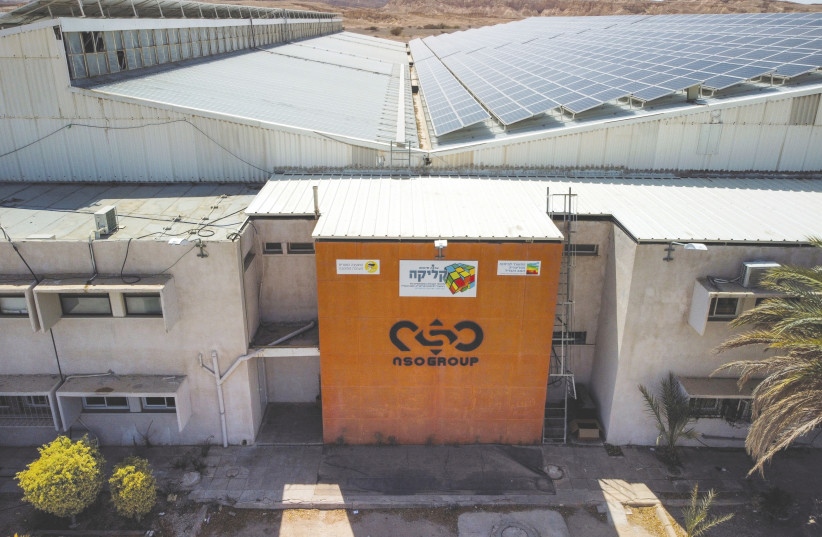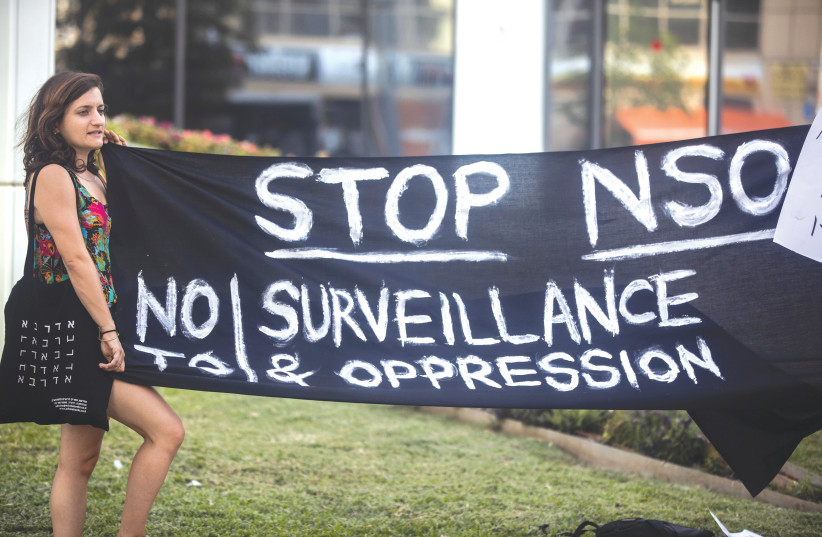The Defense Ministry has massively shrunk the list of countries that Israeli cyber firms can sell to, Israeli media reported on Thursday, following the fallout from the NSO Group cellphone hacking scandals.
Only 37 countries are on the updated permitted countries list compared to the old list of 102 permitted nations, Calcalist reported.
Notably, Jerusalem’s new allies with growing relationships, Morocco and the United Arab Emirates, as well as behind-the-scenes ally Saudi Arabia, were taken off the permitted list.
Countries remaining on the list include the US, Canada, Australia, European countries, India, Japan and South Korea, all of which are democratic countries with stronger protections against violating privacy rights and civil liberties.
This is expected to be a major blow to the Israeli cyber industry, especially for NSO and Candiru, both of which were blacklisted by the US Commerce Department based on a finding of selling to non-democratic regimes that misused the technology to abuse human rights.

Although NSO has been hammered for years by Amnesty International and other human rights groups, reports of its clients abusing NSO’s technology to perpetrate human rights violations by 17 media organizations in July, a lawsuit by WhatsApp in a US federal court, and the blacklisting seem to have put it in much greater jeopardy than ever before.
Only days after announcing that NSO CEO Shalev Hulio would be replaced by former Partner CEO Isaac Benbenisti – seemingly an NSO attempt at a makeover to ride out the storm – Benbenisti pulled out.
Then earlier this week, Apple unleashed its own major lawsuit in the US against NSO, and the credit rating agency Moody’s downgraded it two levels to Caa2, which is eight levels below investment grade.
Moody’s warned that NSO is at growing risk of defaulting on its $500 million in debt, citing that NSO only had $29m. in free cash in June after maxing out its $30m. banking credit line.
All of this comes after NSO was valued at $1 billion two years ago and after it was getting credit in late 2020 for having helped build bridges with all four countries which later joined the Abraham Accords with Israel.
Prior to that, it had defrayed criticism from NGOs with news stories about its technology stopping ISIS and other terrorists from committing mass murders in Europe and elsewhere.

As recently as Prime Minister Naftali Bennett’s meeting with French President Emmanuel Macron in Glasgow a couple of weeks ago, the government still seemed to be trying to protect NSO and rescue it from the situation.
But the new limited list could be a turning point where the defense establishment has decided that the damage NSO has done, or is perceived of having done to Israel’s image and relations in the West, now outweighs ensuring its survival.
Even if the ministry has not gone that far, the drastic reduction in countries for which NSO and other cyber firms can do business means that it is heavily reducing their playing field to minimize future embarrassments.
NSO referred the issue to the ministry.
The ministry did not confirm or deny the report but said, “The State of Israel is always reviewing its oversight policies for exporting security products, and oversight of cyber products is included within this. Regarding decisions related to oversight policies, we take into account security, diplomatic and strategic factors, including” staying in line with internationally recognized standards.
Further, the ministry added that anytime it reveals that it has approved sales of cyber technology to countries that have abused the technology, it will “take appropriate steps."
Neither the ministry nor the Calcalist piece specified whether there was evidence that all 65 countries removed from the approved list had committed abuses with the technology or whether this was a partial public relations move to – at least for now – end the sale of cyber products to non-democracies.
There are cyber and defense officials who believe that permanently ceasing the sale of cyber products to these countries will not make the world better and will just allow Israeli rivals, such as Russia, China or even Iran, to step into the picture as the new seller.
